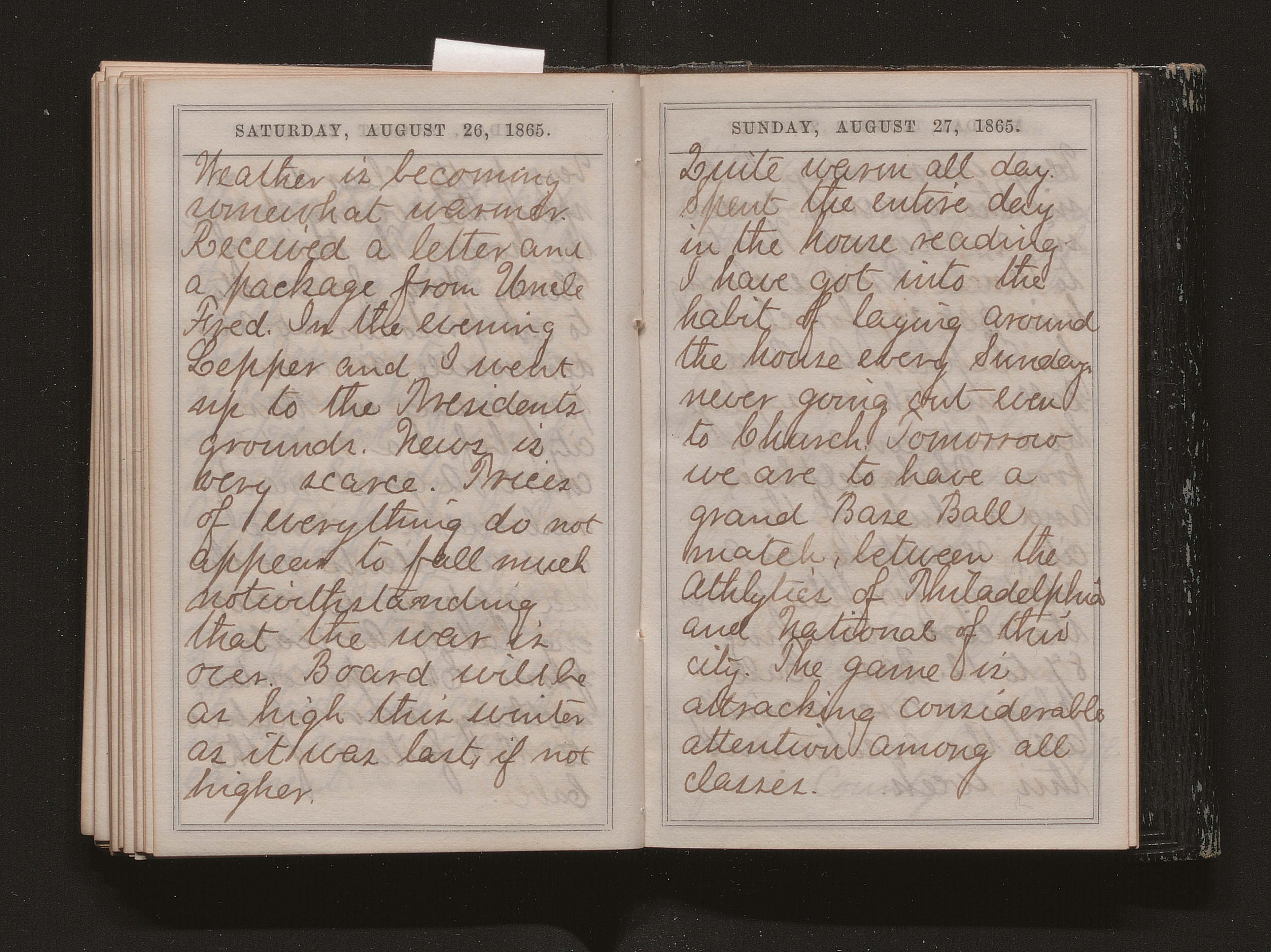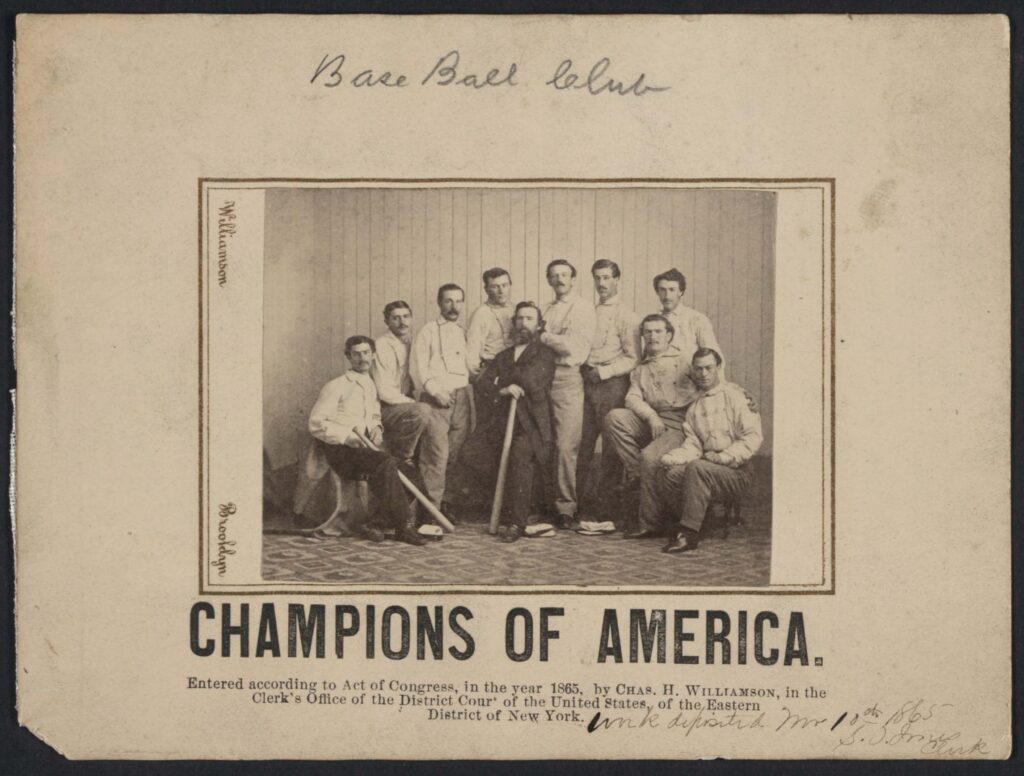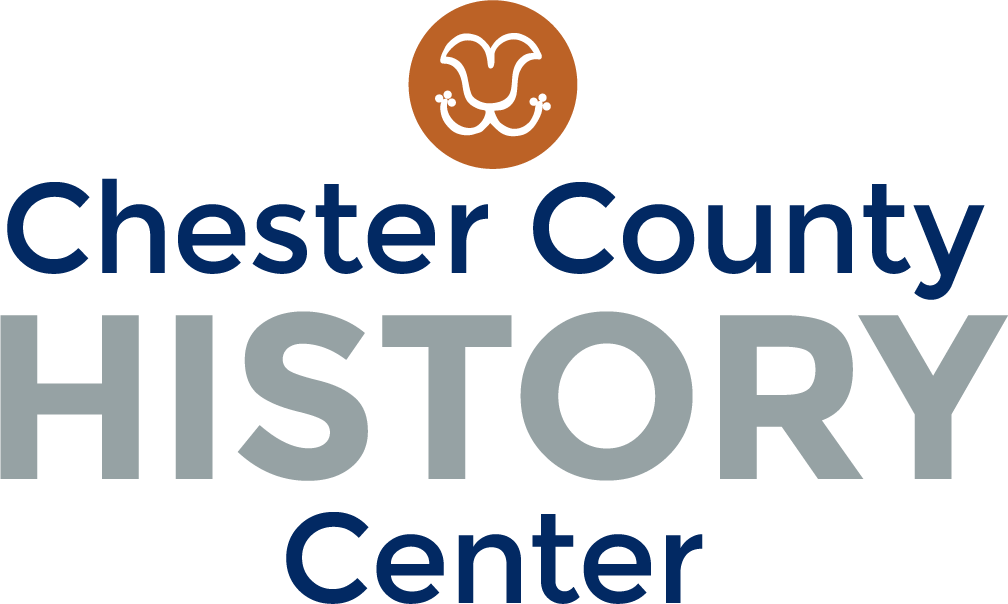By E. Richard McKinstry, Library Volunteer
As the 2023 baseball season opens, the Chester County History Center remembers West Chesterite William W. Heed. Born in 1843, Heed was educated locally, as a teen held a job with the Village Record newspaper, and eventually operated a hat store on Gay Street. Additionally, he wrote a column, “By-Gones Retouched,” for the Daily Local News. Heed married Emma Keffer in 1870, and together they had two daughters, Edna and Helen. William Heed died in 1927 and is buried at Oaklands Cemetery, West Goshen Township.
During the Civil War, Heed was a Union soldier assigned to office work in Annapolis, Maryland, then at the War Department in Washington, DC. In 1864 and 1865, he kept a diary. In a neat and legible hand, Heed recorded daily events as they transpired, some relatively unimportant in helping us understand our nation’s past, others compelling, including mentions of the progress of the war.

Baseball was an important activity to Heed, possibly because he thought it was a unifying force that could bring people together following the war. On August 27, 1865, the conflict having ended several months earlier, Heed, who was residing in Washington, wrote in his diary about an upcoming baseball tournament featuring teams from Brooklyn (the Atlantics), Philadelphia (the Athletics), and Washington (the Nationals) saying “Tomorrow we are to have a grand Base Ball match between the Athletics of Philadelphia and Nationals of this city. The game is attracting considerable attention among all classes.” The Nationals constructed stands for spectators south of the White House on grounds now called the Ellipse. A ticket cost one dollar; even at that hefty price, thousands of people attended the tournament. The home team lost the August 28 game by the lopsided score of 87-12. Heed followed up by writing that “Base Ball players are raising all the excitement this week.” Unfortunately for the Nationals, one day later they lost another game, this time to the Atlantics.

Arthur P. Gorman was both an administrator (the vice president) and a heavy-hitting third baseman for the Nationals. A young man of twenty-six in 1865, he boasted impressive political and social connections. As a boy, he served as a congressional page, befriending such legislative luminaries as Sen. Stephen A. Douglas of Illinois and Sen. Andrew Johnson of Tennessee. On August 30, the day after the Nationals game with the Brooklyn Atlantics, Gorman arranged for members of the Atlantics to meet Andrew Johnson, the first time a president welcomed a baseball team to the White House. Today it is commonplace for World Series victors to visit presidents. Credited with a second first, the Atlantics circulated the earliest baseball card, actually a carte-de-visite, a calling card, also in 1865.
Heed continued his baseball observations on September 19 by writing that “The Base Ball men of this city are making preparations to receive the Athletics of Phila and the Atlantics of New York, who are to play a game for [the] championship of the United States in this city in two weeks.” However, because Heed did not follow up with another diary entry about the game, it may not have been played. But on November 11, Heed said that “The base ball players have been excited over a match between the Atlantics of N.Y. and Athletics of Philad. The New York club beat.”
William W. Heed’s two-volume diary is available to readers at the Chester County History Center during regular library hours. Shortly, it will also be accessible electronically on the Center’s web site at https://mycchc.org/collections/online-collections and through Pennsylvania’s online union catalog, the Power Library, at https://powerlibrary.org/category/collections/chester-county-history-center/#.ZBm7ucLMJPb.
